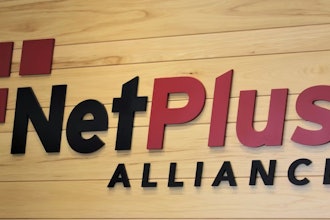
Last week, I attended my first industry trade show. I know this comes as a shock to many of you who have attended countless shows across a multitude of states and countries, or even continents, but I had never been to one before attending STAFDA this last week.
It was an experience, to say the least.
I walked several miles, shook a hundred or so hands, and met dozens of wonderful and inviting people. This industry is one that welcomes newcomers with open arms, and I really appreciated that this week as I entered into new territory. I learned about new companies, learned how to pronounce the names of companies that I was already familiar with (my apologies, Pferd, with a silent “P”), and met some truly interesting people representing ground-breaking new technologies and products.
I also witnessed firsthand industry insiders who showed a lack of confidence in where the distribution marketplace is headed, and I would have recognized this even without hearing the keynote speakers that touched on the same topic. People were uncertain. People who had been in business a long time were uncertain. People who were witnessing demographic shifts that the industry is at times failing to accommodate were uncertain. Some were even downright depressed, shaking their heads and looking despondent when I asked “What’s new?”
Jim Fall, Business & Operations Director for 3M’s Industrial Adhesive & Tape Division, said in his address that the biggest issue in growing a business today is the lack of relevance across generations in business practices. He is absolutely right. Companies, even mega-corporations, are failing to make their business interactions with customers relevant across the generational divide. I see it all the time in both my professional and personal environments.
As a twenty-something raised in a technologically driven society, it bothers me that companies still send me direct mail fliers or print catalogs. It more than bothers me – it really distresses me. I hate to see that printed product that I am never going to read show up in my mailbox each day. It proves to me that I am an impersonal target by a corporate mass mailing, selected to receive this by mere geography or demographic data. It proves to me that the company, or the political party, doesn’t care as much about the environment as they claim to, choosing to print slanted words on precious paper that could be better used in a thousand different ways, especially when that same advertisement or slogan or “free” offer could have been delivered by email or text message. I am of the generation that recycles because it knows it has to, not because it is being avant-garde.
On the flip side, my father pays for everything in cash. The man doesn’t own an email address, and I remember the frustration that I had in teaching him to use the internet. Texting is out. If it doesn’t print on paper, he doesn’t read it.
Jim Fall’s theory about companies and their lack of cross-generational relevance incorporates topics such as brand loyalty and peer recommendation. Studies show more and more that individuals, especially from my generation, look to social media and a company’s online presence for the bulk of their product information. Before I purchase anything, I search the internet for reviews and ratings and consumer reports. I never walk into a restaurant on blind faith – why would I ever need to do that when I can find out if it is clean, if the staff is knowledgeable about their product, and what the house specialties are before I ever get out of my car?
So what does this say about companies that are neglecting to reach across that divide and embrace eCommerce and online product catalogs? Will they ever be able to catch the attention of the young men and women that are and will continue to take over purchasing departments, who will control the corporations of the future?
Condoleezza Rice, in her keynote speech at the show, postulated that the United States has in the last decade encountered three major shocks to its system: the attacks on September 11th, the financial crisis in 2008, and the current instability in the Middle East. While it is hard to argue with as intelligent and accomplished woman as Condoleezza Rice, I would like to add one more shock to her list: the digital revolution.
For companies in modern America and across the globe, the digital revolution is every bit as unsettling today as the financial crisis was in 2008. The ways in which we interact today are so different from what we have encountered in the past. Our relationships with family, friends, neighbors, and people that we went to high school with have changed because of social media and the internet. In much the same way, our consumer relationship with products has also changed. Social media has given corporations and their products a face of their own; a presence that people can interact with and relate to, for better or for worse.
What will you do about it?
Did you see me wandering out looking lost and overwhelmed at STAFDA? Any tips for me to use at my next trade show? Send me an email at [email protected].






















